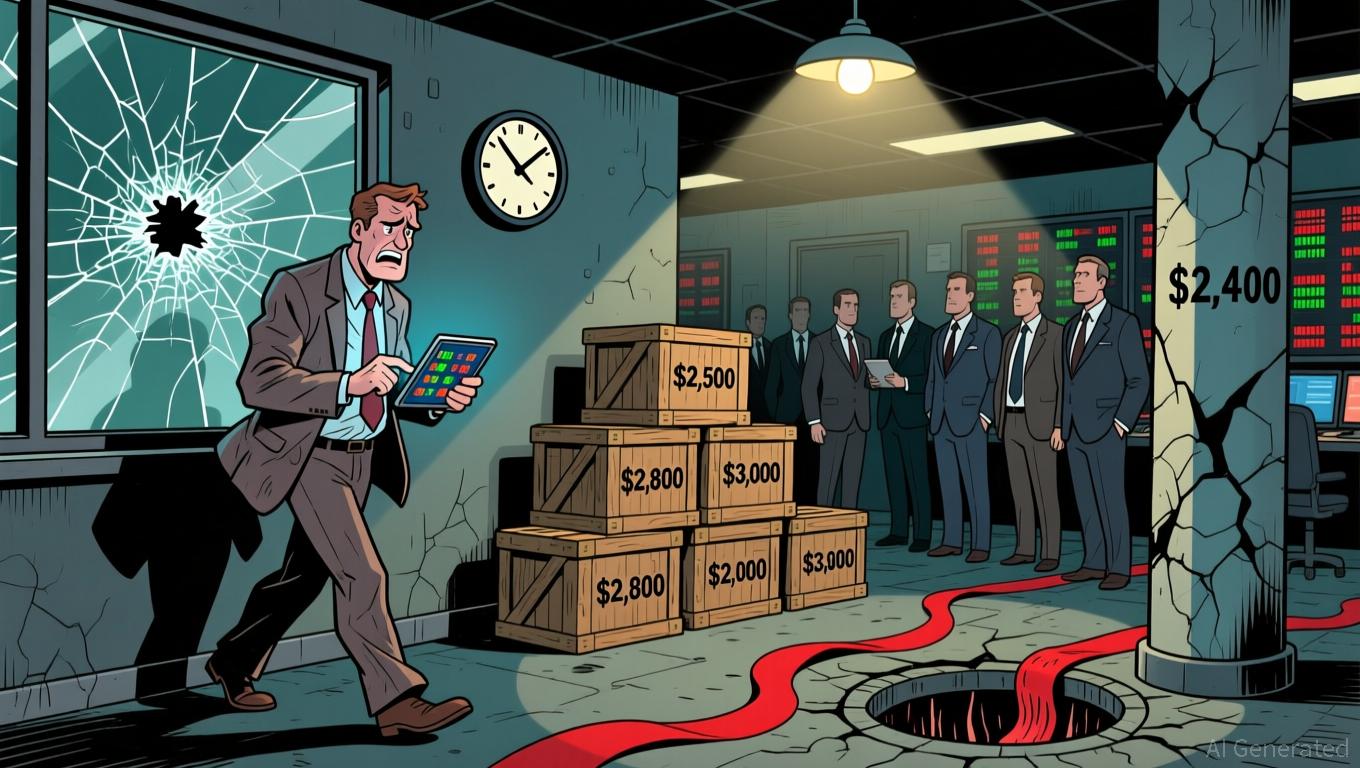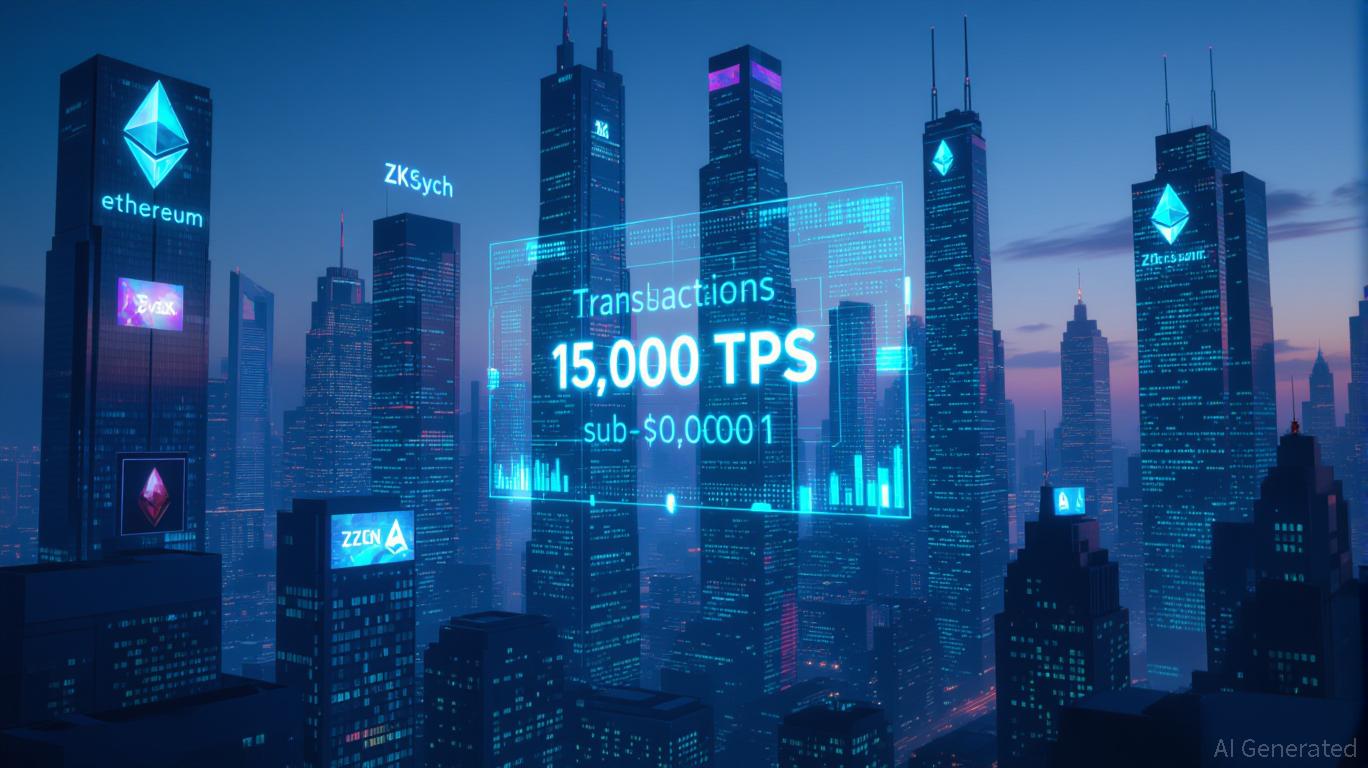South Korea's Cryptocurrency Reform: Will New Regulations Enhance Confidence While Preserving Innovation?
- South Korea's National Assembly plans to enforce strict VASP regulations requiring criminal record checks for all major shareholders, including foreign investors. - The law mandates re-evaluation of existing VASPs, creating compliance challenges for smaller firms with complex ownership structures. - By extending oversight to global criminal records, the reform sets a potential international precedent and could reshape cross-border crypto investments. - While critics warn of stifled innovation, proponents
South Korea's National Assembly is on the verge of passing comprehensive new regulations aimed at Virtual Asset Service Providers (VASPs), a move that could have far-reaching effects on the international cryptocurrency industry. The draft law, which is currently being considered, would require thorough background investigations for VASP shareholders with criminal histories, representing a major change in the way crypto companies obtain regulatory clearance.
The legislation would empower financial regulators to deny VASP registration if principal shareholders—defined as those with substantial control—have criminal convictions anywhere in the world. This marks a departure from existing regulations, which primarily assess the company itself, by extending scrutiny to all significant stakeholders, including overseas investors. Current VASPs would also be subject to renewed evaluation, risking their licenses if shareholders do not comply with the updated requirements. This presents immediate compliance hurdles, especially for smaller firms with intricate ownership arrangements
The scheduled review of the bill on November 27 is consistent with South Korea's ongoing initiatives to reform its crypto sector. Authorities are seeking to curb illegal activities and bolster investor trust. Should the bill pass, the swift rollout would give VASPs limited time to adjust ownership structures or manage the costs of continuous compliance checks.

Opponents of the bill argue that its broad criteria for disqualification—without clear exceptions for less serious or unrelated offenses—could hinder technological progress. Supporters, on the other hand, maintain that these steps are essential for eliminating bad actors and fostering a more reliable digital asset industry. The effectiveness of the policy will depend on fair enforcement that safeguards investors while not imposing excessive obstacles on legitimate enterprises.
The bill’s focus on transparency among shareholders could set a benchmark for other countries. South Korea’s regulatory choices often shape global standards, given its prominence in the cryptocurrency sector. By including foreign criminal records in its vetting process, the country highlights the international scope of the new rules, potentially encouraging other nations to follow suit.
With the November 27 review drawing near, both the crypto industry and regulators worldwide are paying close attention to how South Korea manages the balance between strict oversight and fostering innovation. The decision could reshape global VASP regulations and further cement South Korea’s influence in the evolution of digital finance.
Disclaimer: The content of this article solely reflects the author's opinion and does not represent the platform in any capacity. This article is not intended to serve as a reference for making investment decisions.
You may also like
XRP News Today: Abu Dhabi’s Green Light Establishes UAE as a Pioneer in Stablecoin Development
- Ripple's RLUSD stablecoin gains Abu Dhabi regulatory approval as UAE advances digital finance leadership. - ADGM's "Accepted Fiat-Referenced Token" designation enables institutional use for lending and cross-border payments. - RLUSD's $1.2B market cap growth reflects institutional demand, backed by USD reserves and dual blockchain operations. - UAE's ADGM-DIFC regulatory synergy attracts global fintechs , with Ripple expanding partnerships across Africa and Asia. - Regulatory milestones position RLUSD to
Ethereum Updates: Ethereum Drops to $2,800, Prompting Surge in Demand for ZKP's Hardware-Based Presale
- Ethereum's price fell below $2,800, triggering $6.5M liquidations and testing critical support levels amid declining on-chain demand metrics. - Institutional players like BitMine accumulated 3.62M ETH (~$10.4B) despite the selloff, signaling long-term bullish conviction. - ZKP's hardware-driven presale gained traction with $17M in ready-to-ship Proof Pods and Miami Dolphins partnership for privacy-focused sports analytics. - Mutuum Finance's $19M DeFi presale and ZKP's auction model with $50K wallet caps

Vitalik Buterin Supports ZKsync: What This Means for Layer 2 Scaling
- Vitalik Buterin endorsed ZKsync in late 2025, highlighting its "underrated and valuable" work alongside the Atlas upgrade achieving 15,000 TPS and $0.0001 fees. - ZKsync's zero-knowledge rollups and EVM compatibility enabled institutional adoption by Deutsche Bank , Sony , and Goldman Sachs for cross-chain and enterprise use cases. - The Fusaka upgrade aims to double throughput to 30,000 TPS by December 2025, positioning ZKsync to compete with Polygon zkEVM and StarkNet in Ethereum's Layer 2 landscape. -

The ZK Atlas Enhancement: Revolutionizing Blockchain Scalability?
- ZKsync's 2025 Atlas Upgrade achieves 15,000–43,000 TPS with sub-1-second finality, addressing Ethereum L2 scalability bottlenecks via Airbender proofs and modular OS. - DeFi protocols like Aave and Lido leverage ZKsync's $0.0001/tx costs to unify liquidity, while Deutsche Bank and Sony adopt its trustless cross-chain infrastructure for compliance and transparency. - ZK token surged 150% post-upgrade, with TVL hitting $3.3B and analysts projecting 60.7% CAGR for ZK Layer-2 solutions by 2031 amid instituti
